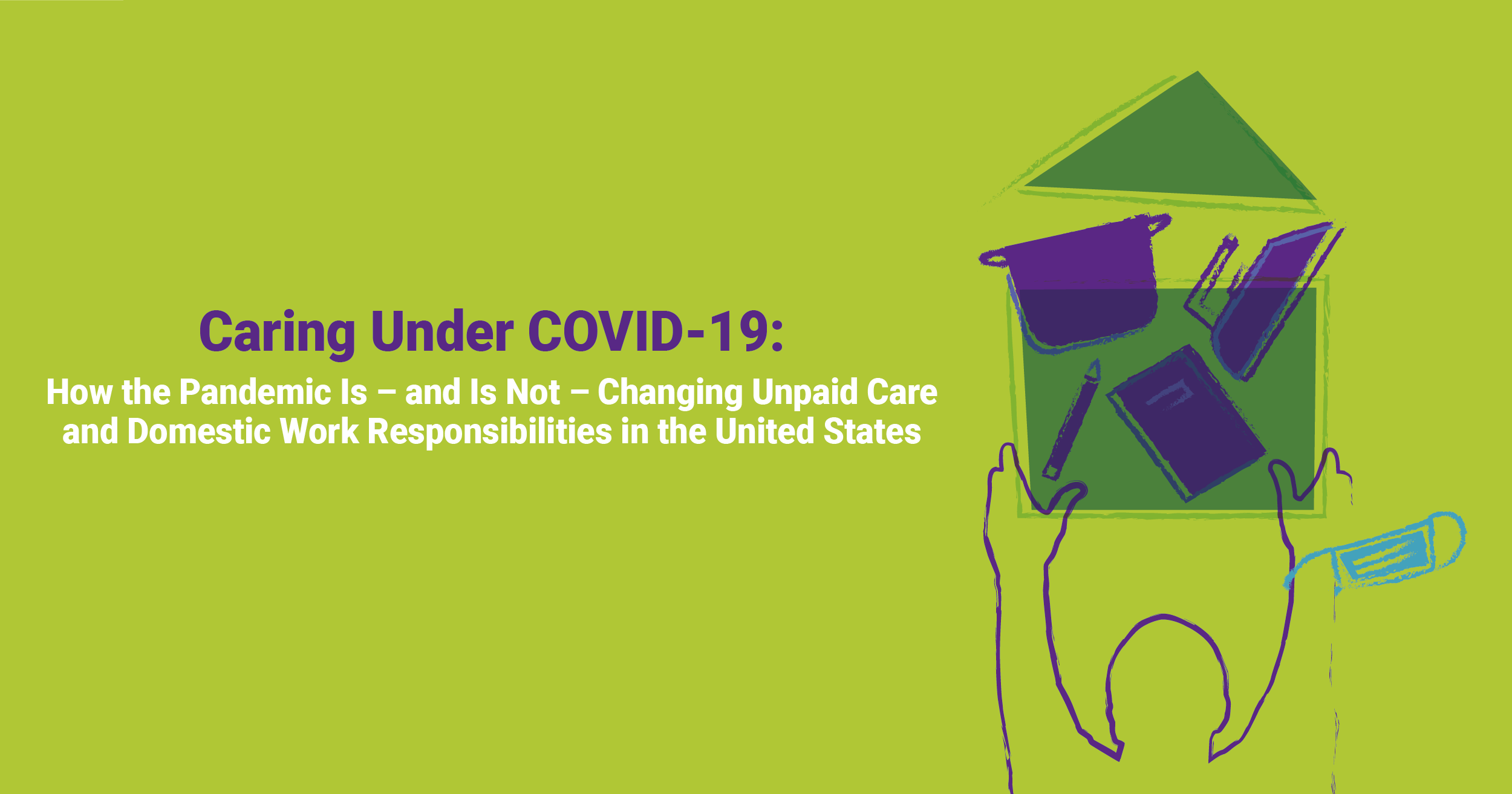Nearly 60% of men and women say daily house and care work has increased during the pandemic, and that it is the most time-consuming part of their days
This report is launched alongside the #HowICare Campaign on Twitter. Join us.

Unpaid care and domestic work – specifically cooking, cleaning, and shopping for the family – are taking up the largest share of respondents’ days during the COVID-19 pandemic, reveals a new poll on unpaid care and domestic work in the United States, launched today by Oxfam and Equimundo, as an initiative of MenCare: A Global Fatherhood Campaign.
The report, under the title Caring Under COVID-19: How the Pandemic Is – and Is Not – Changing Unpaid Care and Domestic Work Responsibilities in the United States, demonstrates how COVID-19 has brought an unprecedented crisis of care in the United States, with a particular workload being taken on by women as a group, and Black, Latinx, and Asian individuals.
COVID-19 has led to an increase – often of many hours per day – in unpaid care and domestic work demands for Americans according to the poll data from likely voters in the United States.
Organized into six key insights, the report finds that:
- COVID-19 has substantially impacted Americans’ work lives, with the greatest toll falling on low-income, Black or African American, and Hispanic or Latino/a households – with a persistent gender gap. Approximately half of the overall sample reported that they had been laid off, had been temporarily furloughed, or had their working hours reduced as a result of COVID-19.
- People of color – who have been particularly hard hit by the impacts of COVID-19 – are taking on care at even higher rates: Whereas 57% of White respondents say that their daily domestic and care work has increased, this rate is higher among Black or African American respondents (71%), Hispanic or Latino/a respondents (74%), and Asian respondents (79%).
- Unpaid care and domestic work – specifically preparing meals and cooking; cleaning, sweeping, or disinfecting; and shopping for food, medicines, fuel, or other goods – are taking up the largest share of respondents’ days during the COVID-19 pandemic. Only 30% of men and 31% of women currently employed full- or part-time say that doing paid work is among the three most time-consuming tasks in their lives during COVID-19. Caring for sick family or community members was a rare choice for White respondents (2%), while at least 10% of Black, Latinx, and Asian, and 50% of American Indian or Alaska Native respondents report this task taking up a large share of their time, once again highlighting the disproportionate impacts of COVID-19 on people of color.
- The gendered distribution of unpaid care and domestic work has not changed during COVID-19, even as this work has multiplied. Respondents of all genders tended to share the view that even as the unpaid care and domestic workload has increased, the distribution of that work has not changed dramatically as a result of the pandemic. At the same time, women and men tended in this survey to list higher rates of involvement in unpaid care and domestic work for themselves than they did for the others in the household.
- Across all respondents, the fact of who does the majority of this work – women – remains steadfast. Respondents agree that most unpaid care and domestic work tasks are more likely to be primarily taken on by women than by men. Men may also be overestimating their total contribution to this work. For example, two-thirds (66%) of men report that they are cooking and cleaning as much as or more than women are, but only one-third (35%) of women agree.
- The pandemic – and its public health responses such as social distancing – is taking a toll on the mental health and well-being of the country, especially women. Half of women (49%) report feeling more anxious or stressed now than before the pandemic and lockdown; 41% of men said the same. Furthermore, among female respondents, almost one-third report that “getting sufficient rest, sleep, time for self-care” is one of the top three things they’ve had to give up, a sentiment shared by 27% of men.
In charting a way forward to address the crisis of care brought on by COVID-19, the report recommends that advocates and policymakers pursue the following aims:
- Prioritize paid leave, childcare, and flexibility, in line with clear and consistent policy demands from advocates;
- Build upon COVID-19-period policy breakthroughs to ensure that they alleviate, rather than exacerbate, existing inequities; and
- Expand voters’ imagination about the types of policies that may benefit them, and follow the lead of those with the closest view of existing problems and inequalities.
The report’s platform for US advocacy and action was developed in consultation with PL+US (Paid Leave for the United States), the national campaign to win paid family and medical leave for all working people in the US. It is the first in a series of similar polls in the #HowICare Project which will be published by Oxfam International in four other countries: UK, Canada, Philippines, and Kenya.